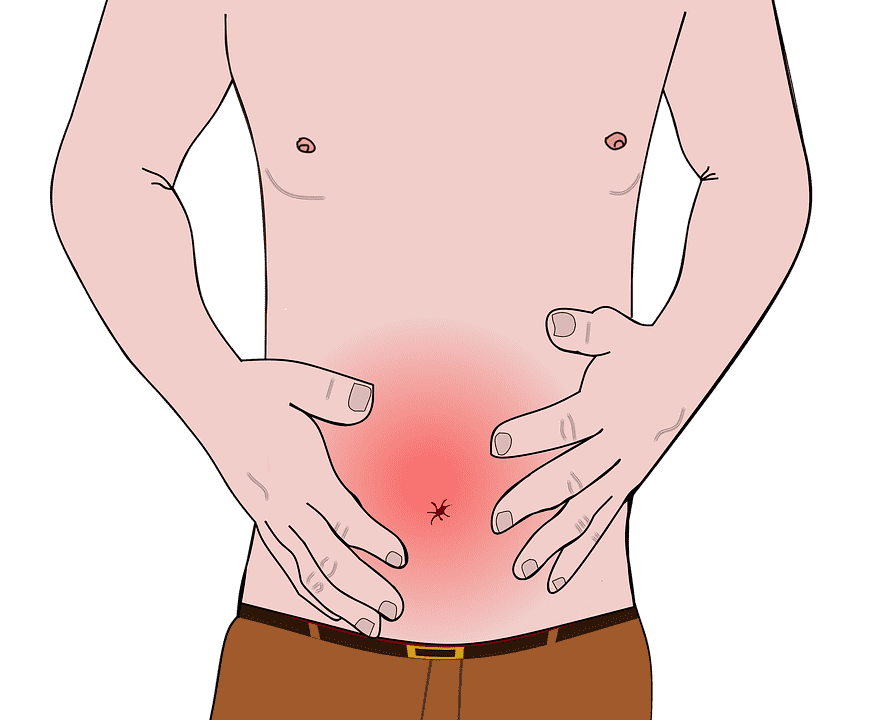
Egg intolerance
Egg intolerance is one of the more common allergic diseases. It affects both children and adults. As research shows, most people with egg allergies are allergic to egg white, not yolk. However, anyone allergic to eggs must avoid both ingredients and foods to avoid with egg intolerance. What are the symptoms of an egg intolerance? What should the diet of people allergic to eggs look like?
Egg intolerance (allergy to hen’s eggs ) is a food allergy in the course of which the body becomes hypersensitive to both the protein and the yolk of a hen’s egg.
However, it more often and more strongly sensitizes egg white (specifically proteins such as ovalbumin, ovomucoid, and ovotransferrin) than the yolk.
Egg intolerance occurs mainly but not exclusively in children and is the second most common food allergy in toddlers. In the first place is cow’s milk allergy.
Egg and egg white allergy usually become less frequent with age.
Egg intolerance – symptoms
- inflammation of the oral cavity
- diarrhea
- vomiting
- difficulties in breathing: runny nose,
- shortness of breath, and even asthma urticaria, conjunctivitis.
The most severe symptom of egg intolerance is anaphylaxis, or anaphylactic shock, during which all signs of egg hypersensitivity are compounded.
Egg intolerance – treatment. Diet for egg intolerance
The only form of treatment for egg intolerance is limination diet, which excludes foods containing eggs from the daily menu.
Unfortunately, it is not easy because the egg is hidden in a huge number of food products, such as pastries, pasta, dumplings, pates, and even in stock cubes.
Eggs are a source of protein, so they should be replaced with other products such as dairy, lean meat (e.g., chicken, turkey ), fish (e.g., salmon, tuna ), tofu, beans.
Fried in butter with chives. Soft or hard-cooked. As an addition to cake and cake dough. The characteristic sound of the breaking shell can be heard in almost every home, at least a few times a week. What if the eggs are harmful? Does an egg-free diet mean the end of tasty breakfasts, lunches, and afternoon teas? What do you need to know about it, and what to replace eggs with to ensure your well-being? Relax, it’s easier than you think!
Egg-free diet
Few people know that egg white (not only chicken but also turkey or quail) belongs to the group of solid allergens, just like peanuts or seafood; in susceptible people, it can even lead to anaphylactic shock. It can sensitize the protein and the yolk or the whole egg. The most common food allergy symptoms are breathing problems, rash, and swelling. You don’t have to wait long for dangerous symptoms – they usually appear immediately after eating a dish with an ingredient containing an allergen. It sounds scary, but luckily, a severe allergy to eggs affects a small number of people. Food intolerance is much more common.
It differs from allergies in that it does not pose a direct threat to life, which does not mean that it cannot cause unpleasant ailments. Its symptoms are felt on average from a few to several hours after eating a product that is not tolerated by the body. In addition to digestive problems (flatulence, constipation, diarrhea, gas, stomach pain), people with food intolerance may experience headaches and fatigue, and there is less swelling or runny nose. These symptoms may last up to several days. By eliminating eggs from your diet, you can get rid of unpleasant symptoms and even include eggs back in your daily menu after a while.

digestive problems (flatulence, constipation, diarrhea, gas, stomach pain
A food allergy or intolerance – to protein only, just yolk or whole eggs – can be quickly ruled out or confirmed by testing. They are available from any good diagnostic laboratory. In the third of the groups above of people who exclude eggs from their diet – the reasons are usually limited to those of an ideological nature. A vegan diet involves the abandonment of animal products, which include eggs.
Egg-free diet – attention, important!
An egg-free diet means not only omitting omelets, scrambled eggs and hard-boiled eggs. When looking for recipes for a delicious breakfast, lunch, dessert, dinner or snack, it’s easy to see that eggs are in almost every recipe. Therefore, on a diet without eggs, traditionally prepared are excluded :
- Pancakes,
- Waffles,
- pancakes,
- ice cream,
- cakes,
- cookies,
- meringue-based desserts,
- ice cream,
- pates,
- vegetable salads (both those with the addition
- of eggs and mayonnaise),
- breadcrumbs.
People with food allergies or intolerances should read the labels on finished products. If the package says that the meal contains or may contain eggs, it is better not to risk it. The same applies to dishes in restaurants or confectioneries – it is worth excluding the presence of eggs in the ordered lunch or dessert each time by asking the staff for information. If no one can answer the question about the dish’s composition, it is best to change the place simply. You have the right to know if what you eat will be safe for your health.

Egg intolerance
The pros and cons of an egg-free diet
An egg-free diet can be burdensome for several reasons:
The list of tasty dishes without eggs may seem very short at first, there are many popular and liked dishes on the list of forbidden dishes, reading labels, making sure the ingredients of a dish ordered in a restaurant or served, for example, during a family celebration can be a real problem, an egg is a source of valuable nutrients – by eliminating them from the daily diet, it is worth remembering about products rich in wholesome and easily digestible protein and vitamins.
Fortunately, living on an egg-free diet also has benefits :
- ensures safety for people with food allergies,
- guarantees a significant improvement in well-being for people with food intolerance,
- dishes without eggs can be tasty,
- By eliminating traditional cakes, coatings or
- fatty mayonnaise-based sauces from your daily diet or replacing them with
- You care for the correct cholesterol, heart, and liver level in healthy equivalents. It can also affect weight loss.
- however, it also depends on other factors, such
- As the caloric content of your meals or your lifestyle. Ultimately,
- However, the balance of advantages and disadvantages of an egg-free diet is a plus in contraindicated people in eating this product.
What’s good to Have in your fridge and pantry instead of eggs?
Ripe avocados, bananas, chickpeas… These are just a few examples of valuable egg substitutes that you can use when preparing your new favorite dishes. Experiment, remembering that the same binding properties as one egg have:
- half a medium banana (perfect for sweet pastries), chickpea or cornflour (with the addition of hot water can replace the traditional coating of cutlets or fillets), medium avocado (not only for dough but also as a paste for spreading on bread),
- Three tablespoons of peanut butter (for pates, stuffing),
- Approx. 2.5 tablespoons of water with 1 Tablespoon of flour.
A pinch of turmeric is enough to get the yellow color of pies or cakes. There are many more tricks that allow you to conjure up tasty and appetizing-looking dishes without eggs. If you want to find out how delicious they are, try our dairy-free diet or the gluten-free and dairy-free diet. They both do not contain eggs, and you can choose options in different caloric variants. If in doubt, we will be happy to answer all your questions – not only about the egg-free diet. Please contact us!
Egg intolerance is one of the most common food allergies in children. An egg intolerance usually begins a few minutes after eating eggs or products containing trace amounts. Symptoms can range in severity, from a relatively mild itchy rash to a life-threatening anaphylactic shock.
Why are eggs allergic?
The allergy to eggs mainly affects children. In most cases, the allergy passes with adolescence. However, adults also suffer from this type of food allergy. Although the allergic reaction is mainly caused by egg white, the yolk may also contain protein fractions that affect egg intolerance. Therefore allergy sufferers should avoid both ingredients. There are over 20 different protein substances in the egg white. The main allergens that cause symptoms are ovalbumin, ovomucoid, ovotransferrin, lysozyme. The strongest of these is the ovomucoid. It can produce the symptoms of a contact allergy when the egg comes into contact with the skin.
Egg yolk causes allergies much less frequently. Some people tolerate the yolk, while they are only allergic to egg white. However, this is a rare phenomenon. People with partial intolerance are advised to avoid both components of the egg.
Egg allergens may cause cross-reactions. Often there is an allergy to meat, eggs, feathers, and droppings of other birds. Some people appear after eating poultry or contact with an animal in some people.
In addition to the commonly known egg substitutes, aquafaba, i.e., chickpea water, is becoming more popular. It is perfect for preparing desserts because you can whip it like egg white.
How is egg intolerance manifested?
An allergy to hen eggs can have various symptoms relating to the respiratory system, digestive system, skin, and general well-being. They often appear right after eating a meal that contains egg or traces of it. Sometimes an allergy to an egg is so strong that the symptoms can be triggered just by entering the kitchen where it was cooked.
The main symptoms of an egg intolerance include:
- runny nose, difficulty breathing (even asthma may develop);
- nausea, diarrhea, abdominal pain; itchy rash on the body, conjunctivitis, stomatitis;
- unusual symptoms such as headache, difficulty concentrating.
The most dangerous symptom of egg intolerance is anaphylactic shock – a very severe allergic reaction that can belife-threatening following exposure to an allergen. Its main symptoms are a rapid pulse accompanied by a sharp drop in blood pressure, dizziness, loss of consciousness. Other significant shock symptoms are narrowing the airways and swelling of the larynx or pharynx that prevents proper ventilation, which can even result in suffocation. In the case of anaphylactic shock, the administration of adrenaline (epinephrine) intramuscularly is an effective treatment.
What products contain eggs?
As mentioned, for an allergic person, the risk is not only eating the egg itself, but also products that contain it, even in trace amounts. Allergy sufferers should therefore carefully analyze the composition of the products stated on the labels. Unfortunately, eggs can be found in foods under different names. The main chicken egg allergens that are found in many products include:
- ovomucoid – a protein substance that is the the strongest allergen of an egg; may show symptoms of contact allergy.
- ovalbumin – the main protein component found in egg white; is one of its primary allergens;
- vitellin – the protein found in egg yolks.
Caution should also be exercised in substances such as ovoglobulin, albumin, isovitexin, globulin.
Few people know that chicken eggs are used to produce certain vaccines (e.g., influenza). The actual amount of proteins they contain is small. Nevertheless, they can cause an allergic reaction in sensitive individuals. So it is essential to tell your doctor about an egg intolerance before you have the vaccine.

Egg intolerance
Chicken egg allergens can also be found in measles, mumps, and rubella (MMR) vaccines. However, the risk of a reaction is so small about the benefits of vaccination that it is recommended even for those children who develop allergic symptoms. However, you should always tell your doctor if your baby is hypersensitive to eggs.
How to Treat Egg intolerance?
A hen egg intolerance is a type of food allergy. The most effective treatment option is to use an elimination diet. Contrary to appearances, this is not a simple solution. While it is pretty easy to exclude an egg from the daily menu, it is challenging to get rid of products containing its trace amounts. Eggs are found in many food products – pancakes, ice cream, pasta, dumplings, pates, etc. If you are allergic to a chicken egg, you should avoid mayonnaise, sauces, and bread with a shiny crust (this effect is obtained by spreading a raw egg on bread before baking) ). It can also be dangerous for adults to drink beer and coffee, to which an egg is added to improve the quality of the foam. Due to the possibility of cross-reactions, egg intolerance often makes it impossible to eat poultry. Sometimes contact with an animal – a chicken or another bird – is dangerous. Cross-reactions can also occur between chicken eggs and eggs from other bird species. Allergic people must also be careful with quail eggs, ostriches, and others. Egg contains a wide variety of essential nutrients. So you can’t just eliminate it from your diet to not lead to a protein deficiency. To balance the diet, the egg can be replaced with chicken breast, tuna, lean pork. It is also recommended to introduce light cottage cheese, yogurt into the diet. Before submitting a diet that eliminates eggs, it is worth consulting a dietitian.
What to replace eggs with?
The egg is an essential element in the kitchen. They are used in the preparation of many dishes and therefore, complete elimination can be difficult. Fortunately, in some recipes, they can be replaced quite simply.
The best egg replacers are inexpensive and readily available. They include:
- gelatin – a packet of gelatin immediately before use, mixed with two tablespoons of warm water;
- yeast – one teaspoon diluted in a quarter of a cup of warm water; potato flour or cornflour – one teaspoon;
- linseed – 2 tablespoons mixed in 1.5 cups of water;
- oat flakes – 1 tablespoon of ground grains pour, 3 tablespoons of hot water.
Thanks for reading.






